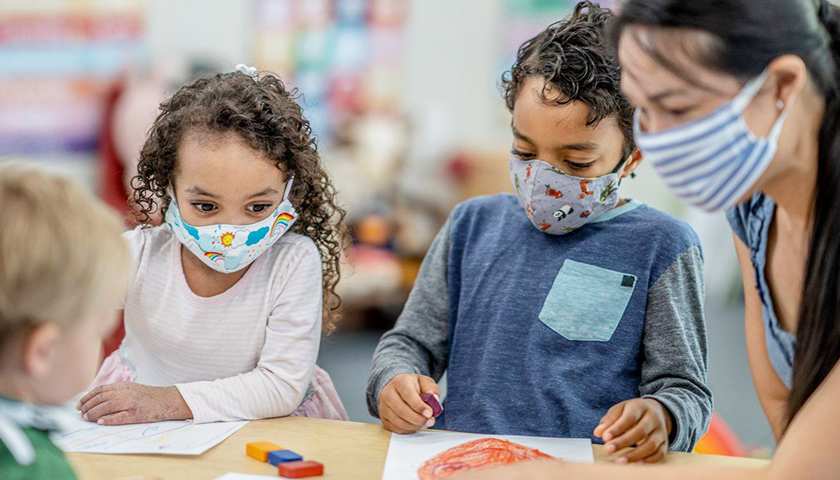by
Projects in the rural communities of Clinton, Hampton, Keokuk, Lake City, Maquoketa, Red Oak and Stanton will all together receive $250,000 in Strengthening Communities grants, the Iowa Department of Cultural Affairs announced Thursday.
The Iowa legislature appropriated funding for the Rebuild Iowa Infrastructure Fund for the Strengthening Communities grants. The grants support communities of fewer than 28,000 residents (based on the 2010 Census) that are renovating facilities or undertaking construction projects that promote “youth development, healthy living and social responsibility.” Organizations must present a minimum of 50% of the grant amount they request. The funding must be secured, dedicated to eligible expenses, raised through public and private funding (not including state funding), and be spent between 2022 and 2024.
The funding will support the following projects:
- $65,000 for the YWCA in Clinton’s reconfiguration of childcare spaces and youth classrooms to expand capacity and improve efficiency to help increase child care accessibility and provide a safe environment.
- $65,000 for La Luz Hispana in Hampton’s renovation of building space, including constructing two classrooms to facilitate simultaneous activities while opening the reception area and front office
- $35,000 for Hoerner Young Men’s Christian Association of Keokuk’s second phase of a renovation, which updates changing areas and moves a sauna to the pool deck
- $35,000 for Montgomery County Family YMCA in Red Oak, which is replacing heating, ventilation and air-conditioning units. The upgrades could help the YMCA save up to 20% in electrical costs, the release said.
- $30,000 for Maquoketa Area Family YMCA in Maquoketa, to address facility issues that have arisen over 14 years of operation, including the removal and replacement of the wellness floor
- $10,000 for Central School Preservation in Lake City’s installation of an outdoor sports court on the property
- $10,000 for Stanton Friends/Stanton Viking Center in Stanton’s construction of an outdoor basketball court along the Greenbelt Walking Trail
Iowa Department of Cultural Affairs Communications Manager Michael Morain told The Center Square in a phone interview Thursday that YMCAs and YWCAs are frequent recipients of these grants, which have more narrow eligibility requirements compared with other grants the department distributes.
The grants program is “open to other organizations. We can only distribute them to eligible applicants,” he said in the phone interview. “If there are others out there, we certainly encourage them to apply.”
The grants also support community cultural centers and recreational facilities, and 16 eligible requests this year totaled more than $900,000, he said in an emailed statement.
The Center for Economic Accountability President John Mozena told The Center Square in an emailed statement that he believes the grants are “reasonably well intended,” even though it would be ideal for taxpayers from the small towns to decide which artistic and cultural projects in their communities are worth financially supporting.
“It’s very rare to have a vibrant, growing economy in a place where people don’t want to live,” Mozena said. “Quality-of-life is something that factors really heavily into how both people make their decision about where to live, as well as how businesses decide where to locate. So while it’s an open question about how effective state and local bureaucracies can be in identifying the places where these kinds of grants are actually needed, the idea behind addressing quality-of-life factors in Iowa’s small towns is a reasonable one from an economic development perspective.”
However, addressing “quality of life” isn’t sufficient for drawing people to these areas, he said.
“You have to combine that with efforts to address other key factors like low tax rates, quality education options and a sane regulatory environment,” he said. “Having ‘youth development, healthy living and social responsibility’ in your small town doesn’t matter much if you can’t afford to pay your property taxes.”
Iowa communities can apply for 10-year designation or renewed designation as an Iowa Great Place, the release said. The program of creative placemaking grants recognizes communities that have developed bold visions around developing their creative and cultural assets and formed the plans, partnerships and projects to make the visions a reality, the department’s news release said. Program participants can apply for grants, participate in professional development opportunities and receive technical assistance, and be considered for additional funding from other state agencies.
“In theory, [creative placemaking is] a fine idea,” Mozena said. “In practice, it tends to end up with money getting spent on aesthetic touches like brick sidewalks and decorative trash cans in places where much bigger factors are at play that have much more influence over people’s decisions about where to go and what to do there.”
He said governments’ decisions about where to allocate these resources are rarely optimal.
“That’s because the people who run those programs don’t get rewarded for delivering the best of all possible placemaking results,” he said. “Rather, they get rewarded for keeping all their key stakeholders happy.”
– – –




